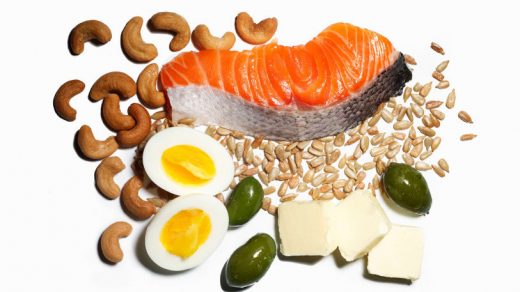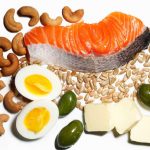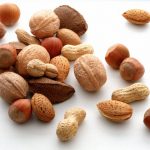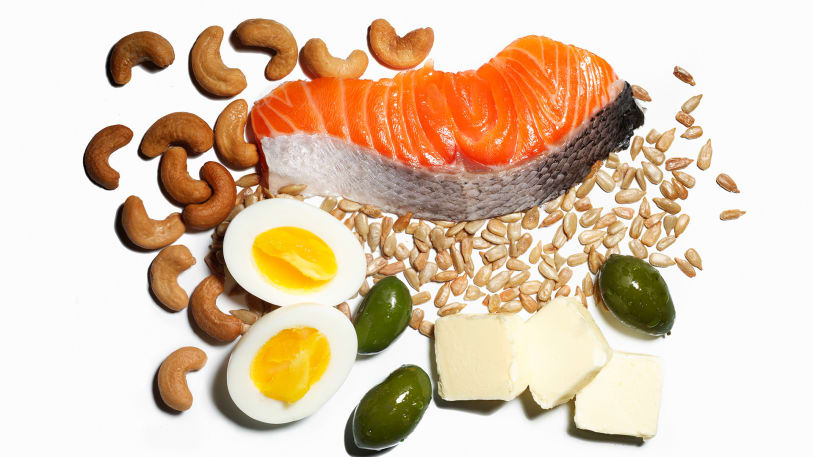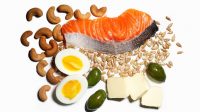What Happened When I Gave Up Gluten, Sugar, Dairy, And Coffee
Like many people, when the new year started, I felt like it was time to turn over a new leaf and undo all of the damage from the gluttony of the holiday season. I was feeling sluggish and tired, and tasks that normally take me an hour or two suddenly consumed the entire day. When I got an email in January from my gym offering a two-week detox program, I reluctantly signed up. Maybe my body needed a reset?
Off limits were dairy, eggs, peanuts, lunch meats, vegetable oils, soy, coffee, black tea, soda, alcohol, sugar, gluten, artificial sweeteners, and fruit juice. These items often have harmful additives or trigger common food sensitivities that impact your physical and mental health. On the menu were most veggies, fruit, organic chicken, turkey, and pork, grass-fed beef, wild seafood, olive oil, nuts, legumes, rice, potatoes, oatmeal, almond milk, green tea, spices, herbs, and more. Many of these foods are known to aid memory and improve focus.
My husband agreed to do it with me, and the first day was easy. I swapped out my normal breakfast of scrambled eggs and coffee for steel-cut oats and green tea. I had a salad for lunch, and dinner was baked salmon, asparagus, and brown rice. Day two was pretty much the same; the food choices were easy, but I felt tired. On days three, four, and five I started to question my decision. I was exhausted, napping (something I only do when I’m sick), and heading to bed at 8:30 p.m. My 2 p.m. sugar cravings–the kind that have me rifling through my purse hoping to find an old restaurant mint–were almost unbearable. And as a result, I was probably unbearable, too.
But then came day six. The fog lifted, as did my mood. I felt like I had more energy than before. Mentally, my workload didn’t feel quite as heavy, and I was accomplishing more in a day than I have previously done.
That’s normal, says Megan Gilmore, author of No Excuses Detox: 100 Recipes to Help You Eat Healthy Every Day. “Serotonin, the neurotransmitter that helps regulate mood, appetite, and sleep, is mostly produced in the gut, so the food you put into your body not only affects your energy levels, but it can actually affect your emotions, too,” she says.
Why Detox?
This was my first detox diet, and Gilmore says taking a break from certain foods is something everyone should do on a regular basis. “Our bodies encounter environmental toxins on a daily basis, including pollution, mold, heavy metals, and more,” she says. “While we don’t have much control over that, what we can do is help lighten the load placed on our crucial detox organs, like the skin, liver, and kidneys, by reducing our intake of processed foods and artificial ingredients, and eating more nutrient-rich whole foods instead.”
If your goal is to drop a couple pounds, detoxes can help with that, too. I’ll admit: my holiday free-for-all affected how my clothing fit, and my wardrobe options were becoming limited. By day four, my stomach was flat and my jeans fit again. And by day 10, I had lost six pounds.
Toxins impact the scale, says Gilmore. “Exposure to toxins can prompt weight gain, regardless of calorie intake or exercise,” she says. A study published in the Journal of Medical Toxicology found that rats exposed to insecticides gained weight without increased caloric intake or decreased exercise. In just four months, these rats experienced a significant increase in body fat when compared to rats not exposed to the same toxic chemicals.
But Detoxes Aren’t A Quick Fix
Detoxes that replace poor food choices with whole foods produce better results than drastic cleanses and fasts because those can lead to a poor relationship with food, says Gilmore. “When you declare one or more food groups completely off limits, it makes those foods more appealing than ever, and may leave you feeling deprived,” she says. “As a result, short-term cleanses make you more likely to rebound in the other direction just as drastically when you’re finished.”
For lasting results you need to create a lifestyle change. “That can sound overwhelming at first, but it doesn’t have to be,” says Gilmore. “Start by making small changes, such as drinking a green smoothie for breakfast. Find a healthy routine that works for you, and stick with it. While making small gradual changes may not sound as exciting, those kinds of changes will create new and lasting habits that you can easily maintain forever, leaving you in overall better health.”
We agree. In addition to energy and focus (and a flatter stomach), our detox brought other big changes. I stopped having trouble falling asleep, stayed asleep, and woke up feeling refreshed. The knee pain I occasionally get when I run went away, and my skin looked brighter. At the end of two weeks, we decided to keep eating this way . . . for the most part. The red wine came back, and if we’re out with friends who want to order a pizza, for example, we’ll participate. Then “we’ll get back in our lane the next day,” my husband says.
“When you consistently eat whole, unprocessed foods, the results are pretty amazing,” says Gilmore. “You’ll see clearer skin, reduced bloating, weight loss, more energy, and better sleep. Most people don’t realize how good they can really feel until they try it.”
Fast Company , Read Full Story
(63)

